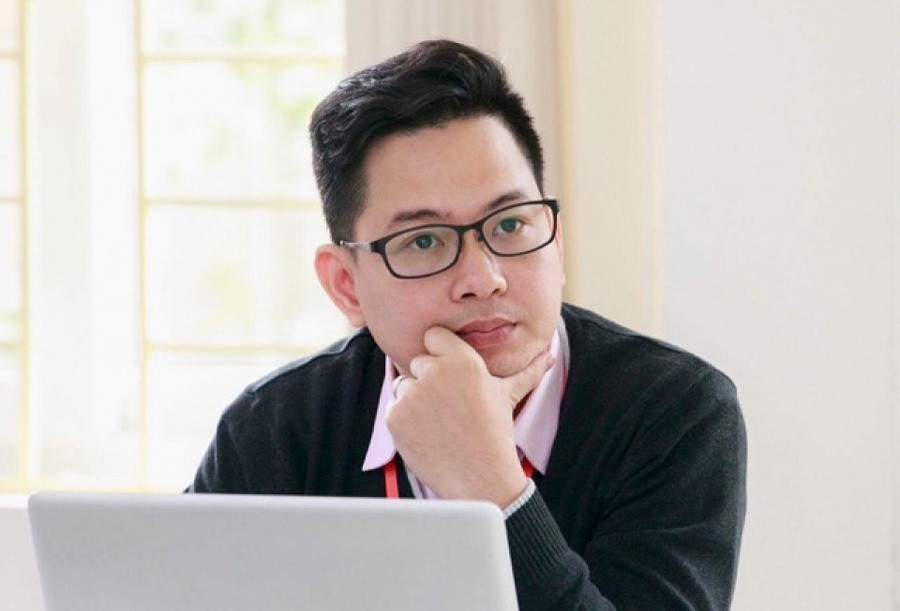
Conception of degree should be changed: Assoc. Prof. Tran Thanh Nam
Latest
 |
| Assoc. Prof. Tran Thanh Nam: 'Conception of degree should be changed' |
When many graduate students get unemployed, some people always ask "What do they study at university for?". What is your opinion on this story?
If we still think that we have to be admitted into a university whatever we study, at the same time, do not realize that a university is only a tool for us to achieve our goals for life, there will be many people who feel confused about what to do after graduating from college.
When we think that just perceiving knowledge from the university’s training program is enough, while we do not spend enough time to get soft skills and abilities for doing a job, or when we want to rest and relax after passing the entrance exam for university, it will not be a surprise that many graduated students get jobless.
It is also not a matter of thought if we still misunderstand career guidance as a simple matter of choosing a job and earning a living and easily making a very quick decision at any time. In fact, career guidance should be based on analysis of data of the needs of social human resources instead of the feelings of a few individuals.
The current education market is opening up opportunities but also challenges for young people. Compared with other countries in the world and the ASEAN region, what is the quality of Vietnam's young human resources?
The current education market is opening up unprecedented opportunities for youngsters. The network of human knowledge is connected and shared in the digital space. Thus, everybody has the opportunity to learn and achieve success whenever they have skills such as goal-setting, life planning, lifelong self-study skills, and the will to maintain motivation to achieve their goals.
However, the development of technology and the equity of educational opportunity also present many challenges. Technology will make unskilled human resources redundant; without the high-level skills of 21st-century citizens, it will be difficult for an individual to be admitted to a particular employment position.
Additionally, along with the development of technology, 80% of Gen Z and alpha generation desire and believe they can work remotely, work from home effectively. This will create unprecedented competition for jobs. University graduates not only have to compete with friends from the same school and country, but also with high-quality human resources from other countries in the region.
Vietnam does not stay behind other ASEAN countries on human resources, especially in terms of knowledge or flexibility. However, the skills of 21st century citizens, such as using the working language (English), efficiency are worse; physical endurance and mental health are also weaker.
Generally, our human resources are not inferior in IQ (Intellectual Quotient) compared to other countries, but may be inferior in EQ (Emotional Quotient), AQ (Adversity Quotient) and PQ (Passion Quotient). These weaknesses can cost our chances of getting good positions.
Currently, more and more companies are finding and attracting talent without asking for a university degree. Google, Ernst and Young, Apple and IBM are among the companies that no longer require university graduation for high-paying positions. Do we also need to change our mindset?
In a context where human knowledge can be equitably accessed to everyone, all factors of originality, creativity, critical thinking and a new way of looking at an issue are decisive to promote the product's value and increase the organization’s worth.
I heard a senior Google employee who talked about Google's recruitment strategy of no longer caring about which university the candidate graduated from and what degree he/she obtained. Because for many years, the best employees of Google have not or rarely related to their academic achievement in college/university or a prestigious degree from a certain school.
Obviously, a company like Google needs specialized knowledge, not the "incisive specialized theories" but practical skills that can be applied to solve real-world problems. Therefore, they just need you to have the "micro-degree" equivalent to specialized certificates that show that you have the ability to solve the problems they need, along with your self-study ability and clever curiosity.
So it's not just about changing the perception of degrees. Universities and training programs themselves must also innovate to better equip learners with innovative skills, critical thinking ability, flexible problem-solving ability, as well as information technology and communication ability as the foundation for individuals to be able to learn for life.
In your opinion, why do so many people still focus on earning a degree instead of acquiring the skills that the job market is in need of?
We live in a VUCA - multipolar world, characterized by Volatility, Uncertainty, Complexity and Ambiguity. In that context, anxiety and confusion are inevitable. And when we're bewildered, we often choose the least safe option. One is following the crowd (exams and joining college), the other is something tangible to hold firmly in hand (that's a college degree).
In any aspect, the university degree itself must act as a record confirming the competencies and qualities of the graduate in accordance with the school's statement when promoting admissions. If a program claims to be very good, enrollment is excellent, but in the end it does not train people with the necessary qualities and capacity, it must explain responsibly to the authorities. If the explanation is not complete, the training program must be disbanded and closed.
The Government also currently has a mechanism for accrediting the quality of training institutions and programs to ensure that the statements of the training institutions about the output standards of the competence and qualities of the learners must be authenticated.
Each school itself needs to change the training method and should combine enterprises and universities to increase the time for professional integration and practising for learners. Forging real combat skills must be done by actual leaders, not theoretical encyclopedias.
 |
| The development of technology and equity in educational opportunities also present many challenges for youngsters. (Source: Nhan Dao) |
To popularise university education, as it is today, is the only way to improve people's knowledge, isn’t it? Young people have too many choices. How do they know which is the right decision?
When talking about the way to improve people's knowledge, it is not necessary to set a target of how many bachelors, masters and doctorates must be achieved. The main thing to motivate each individual to update knowledge and learn for life, is "intelligent curiosity", "desire to create change" and "dissatisfaction with old things", among others.
I also took from the term “googleyness”, one of the qualities Google sets out to recruit potential candidates.
| "Each school itself needs to change the training method and should combine businesses and universities to increase the time for professional integration and practising for learners." |
In a very uncertain context, with too many choices, it is necessary to make career-oriented decisions based on science. Each individual must discover what his strengths, qualities are and outstanding abilities are. He must determine what his passion and interests are, and what values will bring him happiness. He needs to understand social professions that are no longer in demand and new industry trends in the future.
People must also take advantage of opportunities to get experience in a career, talk with people who work early to find out about the conditions, environment, nature, challenges, health requirements and the special skills of the job. Then, on the basis of discussion with the family, there should be a collaboration between requirements and abilities, family aspirations and personal desires and development opportunities and family economic circumstances.
To register for a training program, based on the agreed career orientations, we should choose a training institution with an appropriate level of training. Find out the physical conditions of the training institution, compare the advantages between the training institutions, consider the reputation of the training institution to make a decision.
Many people still admit a university degree as a "passport", a "ticket to life" to apply for a job. So, when it comes to the national high school exam and university admission, parents and candidates are on their toes to choose schools and majors. Can you suggest a solution to change the "degree concept" in Vietnam?
All the roads lead to Rome. Whether we succeed in life or not does not depend on which path we take, but a lot on our attitude towards the chosen path. It is the effort, the daily motivation and the attitude to accept our mistakes and failures on our way as inevitable and an opportunity for us to learn lessons for being mature.













